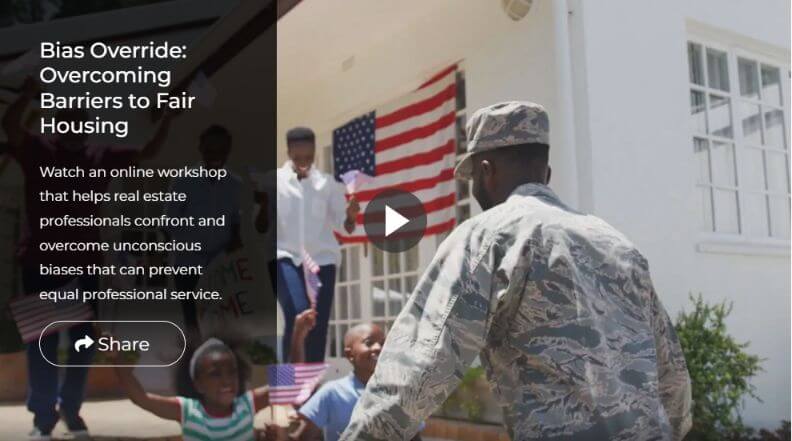Fair Housing

REALTORS® recognize the significance of the Fair Housing Act and reconfirm their commitment to upholding fair housing law as well as their commitment to offering equal professional service to all while searching real properties for their clients. Especially they would go above and beyond to set a higher standard for fairness in housing, advocating through community outreach, education, committees, and other initiatives. Because That’s Who We “R.”
As champions of Fair Housing laws, the National Association of REALTORS® fights discrimination and promotes equality through an award-winning program called “At Home with Diversity.” The At Home With Diversity® curriculum encompasses topics of diversity, equity, inclusion, fair housing, and risk reduction. Since 1998, over 20,000 REALTORS® have worked effectively with and within today’s increasingly diverse pool of homebuyers. Click here for details of the Online At Home With Diversity® Certification Course.
NOTICE: REALTORS® are required to complete Fair Housing / Anti-Bias Training upon becoming a member, and every 3 years thereafter, coinciding with the Code of Ethics training timeline. This requirement is in addition to the Code of Ethics training. Qualified training must be of not less than 2 hours of instructional time. The training must meet specific learning objectives and criteria established by the National Association of REALTORS®. This requirement began January 1, 2025 with a deadline of December 31, 2027.
Training may be completed through NAR’s online courses or through another method, such as online or classroom courses via local/state associations. Read the consequences for failing to complete Fair Housing / Anti-Bias training.
Fair Housing Resources
- NAR offers a comprehensive field guide on fair housing
- U.S. Department of Housing and Urban Development (HUD) offers an excellent resource page for fair housing, and
- California Department of Fair Employment and Housing offers fair housing resources as well.

On January 14, 2025, NAR launched Fairhaven 2.0—NAR’s dynamic online simulation where real estate professionals tackle fair housing challenges head-on. Through realistic scenarios, practical insights, and historical context, you’ll explore key topics like steering, bias, disability accommodations, and standing up for clients facing discrimination.
This course is your gateway to creating more inclusive and equitable communities while meeting the new NAR fair housing training requirement that takes effect January 1, 2025. Best of all, it’s free for NAR members. Your fair housing skills start here! Experience Fairhaven Now
Implicit Bias
The mind science experts at the Perception Institute present an online workshop to help members avoid implicit bias in their daily business interactions. Drawing upon the latest evidence-based research, Perception explains how our brains’ automatic, instant association of stereotypes with particular groups can cause us to treat those who are different from us unfairly, despite our best intentions and often without our conscious awareness.

